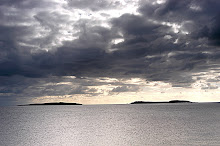Sunday, October 25, 2009
oh fritzsche
Peter Fritzsche, in the chapter entitled “January 1933” from his Germans into Nazis, makes a few quick arguments that I believe are dubious at best. One of his arguments is that the best place to look at to explain Hitler’s rise to power is Hindenburg’s 1925 election victory. Fritzsche claims that both Hitler and Hindenburg are alike because they are able to motivate the masses, blah blah blah, same thing over and over again. But in looking for ways to make his whole “mobilization of the masses” argument look more solid (and I do think it does look solid already) he tries to stretch it to a link between Hitler and Hindenburg. Firstly, although Hindenburg’s 1925 victory might have roused popular support, a few years later in the 1932 presidential election he is forced to go to a run off because he failed to get a clear majority of the people. Moreover, Hindenburg was only able to initially gain the people’s support in 1925 because he was the only logical and most stable choice. He did not inspire, like Hitler, the people to support him because of his answers or potential solutions. In fact, he didn’t inspire the people at all, believing instead that he should not have to rally for people’s support or even try to win their favor. Sure, there were “grassroots” movements in favor of Hindenburg as Fritzsche claims, but they were grassroots movements not started by Hindenburg himself, but grassroots political movements in general that happened to join his bandwagon. If those grassroots movements had voted for another leader in 1925 I suppose Fritzsche would claim that that new leader is the best place to look at to explain Hitler’s rise, in essence making his argument ridiculous - because people, forming a majority (get out of town Fritzsche, no way! Not a majority!), voted means that people might also vote later for a guy named Hitler. Wow. That is a good argument. Bottom line, Hindenburg was just the best option at the time – nothing like the political force that was Hitler who arose from nothing with a new untested political party to assume control of the people. The other argument that Fritzcshe makes (just so he can make his Hindenburg argument seem more accurate and cutting edge and shiny and new) is that the economic conditions did not predispose Hitler’s assumption of power. Well of course it did not equal Hitler’s rise to power, but the Nazi party was the party who took advantage of the economic situation the best, and had the most inspiring message for recovering from the economic depression. So, in that sense, the economy is important in explaining the rise of the party – would the whole country even look for leadership from an untested and radical party if things were running smoothly? No way. Get out of town Fritzsche. On a more serious note, I believe Fritzsche is being controlled by his thesis. He formed his thesis (mass mobilization = Nazis) before doing the research, or was so excited about his thesis that he tries to force his thesis into every situation – which does not work.
Subscribe to:
Post Comments (Atom)

While I generally agree with your criticism of Fritzsche and his repetitive argument, I'm not sure that I agree with your critique of his Hindenburg to Hitler argument. You rightly point out Hindenburg's failure to retain the voters but I think Fritzsche's point is more how that support was being raised and how new groups, specifically conservatives, were embracing mass politics in a new way. This changing perception of politics, in my view, does play a role in explaining the appeal of Nazis.
ReplyDeletePolitics in Germany was changing. The people sought a "strong man" to lead them, much like Bismarck had done a generation earlier. In Hindenburg and Hitler, there was a degree of trust between them and the people. The masses wanted to believe in these guys. After Hindenburg got into office, "the honeymoon ended," and he gradually lost a good bit of his support. The point is that the people were mobilizing from a bottom up, not top down manner for both of these men. Because of the political success of Hindenburg, Hitler adjusted his gameplan (made a political audible at the line of scrimmage) and eventually was able to use mass politics to become very popular by 1933.
ReplyDeleteThe people really did want a strong leader who would be able to lead them in these times of trouble and Hindenburg and later Hitler presented themselves as good candidates. once this ball got rolling, they were able to consolidate power especially under Hitler which gave him more abilities adn freedom which in turn gained him even more freedom and power as the people below him further submit to him Only with such concentrated unrestricted power would he have been able to single-handedly mobilize the Nazi forces.
ReplyDelete